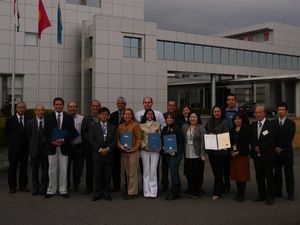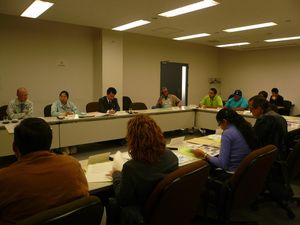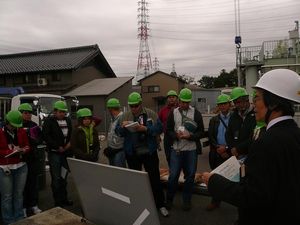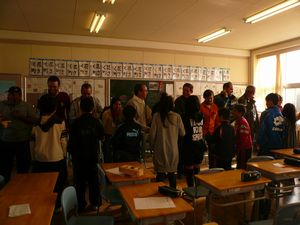Home > Workshop and Training > IN JAPAN > Fiscal Year 2010 > FY2010 JICA Training Course Closes on “Waste Management for Promoting a Recycling-Oriented Society in Venezuela”
Main content starts here.
Update:December 14, 2010
FY2010 JICA Training Course Closes on “Waste Management for Promoting a Recycling-Oriented Society in Venezuela”
A fiscal year 2010 training course on “Waste Management for Promoting a Recycling-Oriented Society in Venezuela”, commissioned by JICA, was held from October 22 to December 2. The 42-day course ended with a closing ceremony.

After closing ceremony

Discussion with local government officials
The course was intended for twelve participants from national and local governments, civic associations, and state-run companies of the Bolivarian Republic of Venezuela. Through lectures and visits to environment-related sites, the participants learned about the Japanese waste management system, methods for promoting the 3Rs of Reduce, Reuse and Recycle, technologies for implementing the 3Rs, and activities for promoting environmental awareness.
They showed an active attitude by asking many questions at the lectures and sites they visited, while frequently discussing matters such as how to use knowledge and skills that they had acquired in the course in their country. At the end of the training, they made presentations of action plans to be pursued after returning home. We highly expect them not only to solve their own problems but to solve national issues in cooperation with each other.

On-site training

At an elementary school
On weekends, they enjoyed a trip to Kyoto and the tea ceremony, and also participated in clean-up activities on the beach. In addition, an exchange event with local residents was hosted by another course together with them. At the event, the participants deepened their friendship with the residents, sometimes by means of gestures, and had opportunities to come in touch with Japanese culture including calligraphy, “origami” - the art of folding paper into various figures, and “rakugo” - a comic story telling. Through these experiences, they said that they had made more pleasant memories than they expected before their arrival in Japan.
We would like to express our gratitude to all the lecturers and other parties involved for the cordial support and cooperation. (Oya)







